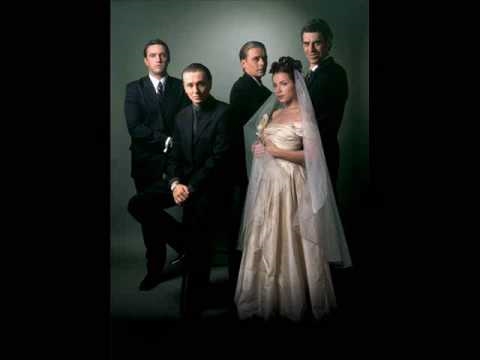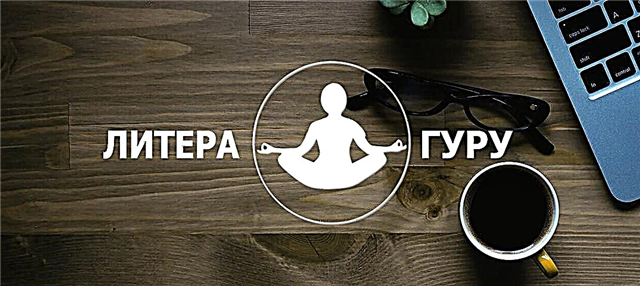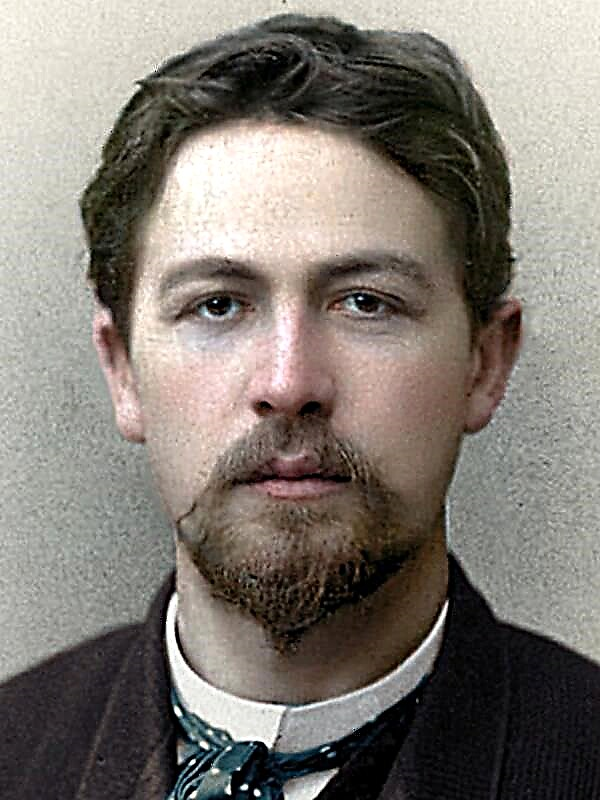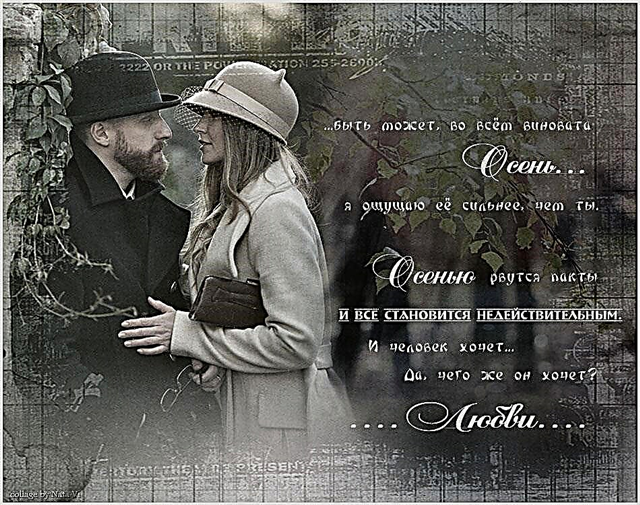Sevastopol in the month of December
“The morning dawn is just beginning to color the sky above Sapun Mountain; the dark blue surface of the sea has already cast off the dusk of night and is waiting for the first ray to play with a cheerful brilliance; from the bay carries cold and fog; there is no snow - everything is black, but the sharp morning frost grabs at the face and bursts underfoot, and the distant, unceasing rumble of the sea, occasionally interrupted by booming shots in Sevastopol, alone breaks the silence of the morning ... It can’t be thought that you are in Sevastopol, your sense of courage, pride didn’t enter your soul, and so that blood does not begin to circulate faster in your veins ... ”Despite the fact that fighting is taking place in the city, life goes on as usual: merchants sell hot rolls, and men sell sbiten. It seems that camp and peaceful life have mixed up here strangely, everyone is scurrying and scared, but this is a misleading impression: most people no longer pay attention to the shots or explosions, they are busy with “routine business”. Only at the bastions "will you see ... the defenders of Sevastopol, you will see terrible and sad there, great and funny, but amazing, soul-raising spectacles."
In the hospital, the wounded soldiers tell about their impressions: the one who lost his leg does not remember the pain because he did not think about it; a woman hit the bastion of her husband’s lunch with a shell and her leg was cut off above the knee. Dressings and operations are done in a separate room. The wounded, waiting in line for the operation, are horrified to see the doctors amputating their comrades' arms and legs, and the paramedic indifferently throws the cut off parts of the bodies into a corner. Here you can see "terrible, breathtaking spectacles ... the war is not in the right, beautiful and brilliant system, with music and drumming, with fluttering banners and prancing generals, but ... the war in its present expression - in blood, in suffering, in death ... ". A young officer who fought on the fourth, most dangerous bastion, complains not about the abundance of bombs and shells falling on the heads of the defenders of the bastion, but about the dirt. This is his defensive reaction to danger; he behaves too boldly, cheekily and unconstrainedly.
On the way to the fourth bastion, non-military people are found less and less, and more often come across stretchers with wounded. Actually, on the bastion, the artillery officer behaves calmly (he is used to both the whistle of bullets and the roar of explosions). He tells how, during the assault on the fifth day, only one operational weapon and very few servants remained on his battery, but still the next morning he again fired from all the guns.
The officer recalls how the bomb hit the sailor dugout and laid eleven people. In the faces, posture, movements of the defenders of the bastion are visible "the main features that make up the strength of the Russian - simplicity and obstinacy; but here on every face it seems to you that the danger, anger and suffering of the war, besides these main signs, have laid traces of the consciousness of their dignity and high thought and feeling ... The feeling of anger, revenge on the enemy ... lies in everyone’s soul. " When the nucleus flies directly at a person, he does not leave a feeling of pleasure and fear at the same time, and then he himself expects the bomb to explode closer, because “there is a special charm” in a similar game with death. “The main, encouraging conviction that you endured was the conviction that it was impossible to take Sevastopol, and not only to take Sevastopol, but to shake the power of the Russian people anywhere ... Because of the cross, because of the name, from the threat they cannot accept these terrible conditions are people: there must be another high incentive reason - this reason is a feeling that is rarely manifested, bashful in Russian, but lying at the core of everyone’s soul — love of the motherland ... This epic of Sevastopol, which the people were the hero, will leave great traces in Russia Russian…"
Sevastopol in May
Six months have passed since the outbreak of hostilities in Sevastopol.“Thousands of people's vanities managed to be insulted, thousands managed to be satisfied, to swell, thousands to calm down in the arms of death” The most fair seems to be the resolution of the conflict in an original way; if two soldiers had fought (one from each army), and victory would have remained with the side whose soldier would emerge victorious. Such a decision is logical, because it is better to fight one on one than one hundred and thirty thousand against one hundred and thirty thousand. In general, war is illogical, from the point of view of Tolstoy: “one of two things: either war is insanity, or if people do this insanity, then they are not at all rational creatures, as it is customary for us to think for some reason”
In besieged Sevastopol, military men walk along the boulevards. Among them - an infantry officer (staff captain) Mikhailov, a tall, long-legged, stooped and awkward man. He recently received a letter from a friend, a retired lancer, in which he writes how his wife Natasha (a close friend of Mikhailov) enthusiastically follows the newspapers about the movements of his regiment and the exploits of Mikhailov himself. Mikhailov bitterly recalls his former circle, which was “so much higher than the present that when in moments of frankness he happened to tell the infantry comrades how he had his own shiver, how he danced at the governor’s balls and played cards with a civilian general” , they listened to him indifferently, incredulously, as if not wanting only to contradict and prove the contrary
Mikhailov dreams of a promotion. He meets Captain Obzhogov and Warrant Officer Suslikov on the boulevard, serving in his regiment, and they shake his hand, but he wants to deal not with them, but with "aristocrats" - for this he walks along the boulevard. “And since there are a lot of people in the besieged city of Sevastopol, therefore there are a lot of vanities, that is, aristocrats, despite the fact that death every minute hangs over the head of every aristocrat and non-aristocrat ... Vanity! It must be a characteristic feature and a special disease of our century ... Why in our age there are only three kinds of people: some - accepting the beginning of vanity as a necessary fact, therefore fair, and freely obeying it; others - accepting it as an unfortunate but insurmountable condition, and others - unconsciously, slavishly acting under his influence ... "
Mikhailov twice hesitantly walks past the circle of "aristocrats" and, finally, dares to come up and say hello (before he was afraid to come up to them because they might not at all honor him with a response to the greeting and thereby prick his sick pride). “Aristocrats” are the adjutant Kalugin, Prince Galtsin, Lt. Col. Neferdov and captain Praskukhin. In relation to the approaching Mikhailov, they behave rather arrogantly; for example, Galtsin takes his arm and walks a little back and forth just because he knows that this sign of attention should give the captain pleasure. But soon the "aristocrats" began to speak defiantly only with each other, thereby making it clear to Mikhailov that they no longer needed his company.
Having returned home, Mikhailov recalls that he volunteered to go the next morning instead of an ill officer to the bastion. He feels that they will kill him, and if they do not kill him, then they will certainly reward him. Mikhailov consoles himself that he acted honestly, that it was his duty to go to the bastion. On the way, he wonders where he might be injured - in the leg, stomach or head.
Meanwhile, the “aristocrats" are drinking tea at Kalugin’s in a beautifully furnished apartment, playing the piano, recalling their St. Petersburg acquaintances. Moreover, they do not behave at all as unnaturally, importantly and pompously as they did on the boulevard, demonstrating to others their "aristocracy". An infantry officer enters with an important assignment to the general, but the "aristocrats" immediately assume their former "pouty" appearance and pretend that they do not notice the person entering.Only after escorting the courier to the general, Kalugin is imbued with the responsibility of the moment, announces to his comrades that a “hot” business is ahead.
Galtsin asks if he would go on a trip, knowing that he won’t go anywhere, because he’s afraid, and Kalugin starts to dissuade Galtsin, also knowing that he won’t go anywhere. Galtsin goes outside and begins to walk aimlessly back and forth, not forgetting to ask the wounded passing by, how the battle is going on, and scolding them for retreating. Kalugin, having gone to the bastion, does not forget to show his courage to everyone along the way: he does not bend down with a whistle of bullets, and takes a dashing pose on horseback. He is unpleasantly struck by the “cowardice” of the battery commander, whose legends are about his courage.
Not wishing to risk in vain, the battery commander who spent six months on the bastion in response to Kalugin’s demand to inspect the bastion sends Kalugin to the guns along with a young officer. The general orders Praskukhin to notify Mikhailov's battalion of the relocation. He successfully delivers the order. In the darkness, under enemy fire, the battalion begins to move. At the same time, Mikhailov and Praskukhin, walking side by side, think only about what impression they make on each other. They meet Kalugin, who, not wanting to “expose himself” once again, learns about the situation on the bastion from Mikhailov and turns back. A bomb explodes next to them, Praskukhin dies, and Mikhailov is wounded in the head. He refuses to go to the dressing station, because his duty is to be with the company, and in addition, he has been rewarded for the wound. He also believes that his duty is to pick up the wounded Praskukhin or to make sure that he is dead. Mikhailov creeps back under fire, is convinced of the death of Praskukhin and returns with a clear conscience.
“Hundreds of fresh bloodied people’s bodies, two hours ago full of various high and small hopes and desires, with numbed limbs, lay on a dewy flowering valley separating the bastion from the trench, and on the flat floor of the Dead Chapel in Sevastopol; hundreds of people — with curses and prayers on their dry lips — crawled, tossed, and groaned, some between the corpses on a flowering valley, others on a stretcher, on bunks, and on the bloodied floor of the dressing station; but still, as in previous days, the lightning lit up over Sapun Mountain, flickering stars turned pale, pulled white fog from a noisy dark sea, lit up a red dawn in the east, crimson long clouds scattered across the light-azure horizon, and still as in previous days, promising joy, love and happiness to the whole revived world, a mighty, beautiful sun came out. ”
The next day, “aristocrats” and other military men stroll along the boulevard and vying with each other talk about yesterday’s “case”, but in such a way that they basically state “the participation that he took and the courage that the narrator showed in the case”. "Each of them is little Napoleon, a little monster and is now ready to start a battle, to kill a hundred people in order to get an extra star or a third of his salary."
A truce is declared between the Russians and the French, ordinary soldiers communicate freely with each other and, it seems, do not feel any hostility towards the enemy. The young cavalry officer is simply glad to have the opportunity to chat in French, thinking that he is incredibly smart. He is discussing with the French how inhumane they started together, bearing in mind the war. At this time, the boy walks along the battlefield, collects blue wildflowers and looks at the corpses in surprise. White flags are displayed everywhere.
“Thousands of people crowd, look, speak and smile at each other. And these people are Christians, professing one great law of love and selflessness, looking at what they have done, they will not suddenly fall to their knees with repentance, who, having given them life, put into the soul of everyone, together with the fear of death, love for good and beautiful,and with tears of joy and happiness they don’t hug like brothers? No! White rags are hidden - and again the instruments of death and suffering are whistling, pure innocent blood is pouring again and moans and curses are heard ... Where is the expression of evil that should be avoided? Where is the expression of goodness that should be imitated in this story? Who is the villain, who is the hero of her? All are good and all are bad ... But the hero of my story, whom I love with all my might of my soul, who I tried to reproduce in all its beauty and who has always been, is and will be beautiful, is true ”
Sevastopol in August 1855
Lieutenant Mikhail Kozeltsov returns to the position from the hospital, a respected officer, independent in his judgments and in his actions, not stupid, in many respects talented, skillful compiler of government papers and a capable narrator. “He had one of those vanities that merged with life to such an extent and which most often develops in men’s and especially military circles, that he didn’t understand another choice, how to excel or be destroyed, and that vanity was the engine of even his inner impulses. "
There were a lot of people passing by at the station: no horses. Some officers heading to Sevastopol do not even have lifting money, and they don’t know what means to continue on their way to. Among those waiting is Kozeltsov’s brother, Volodya. Despite Volodya’s family plans, he didn’t go to the guard for minor misconduct, but was sent (at his own request) to the army. He, like any young officer, really wants to “fight for the Fatherland”, and at the same time serve in the same place as his elder brother.
Volodya is a handsome young man, he is shy in front of his brother, and is proud of him. The elder Kozeltsov offers his brother to immediately go with him to Sevastopol. Volodya seemed embarrassed; he no longer really wants to go to war, and, in addition, he, sitting at the station, managed to lose eight rubles. Kozeltsov from the last money pays his brother’s debt, and they move on. Along the way, Volodya dreams of the heroic deeds that he would certainly accomplish in the war with his brother, of his beautiful death and dying reproaches to everyone else for the fact that in life they could not appreciate “those who truly loved the Fatherland”,
Upon arrival, the brothers go to the booth of the convoy officer, who recounts a lot of money for the new regimental commander, who is acquiring the "household". No one understands what made Volodya abandon a calm, settled place in the far rear and arrive without any benefit to the warring Sevastopol. The battery, to which Volodya was seconded, is on the Ship, and both brothers go to spend the night at Mikhail’s fifth bastion. Before that, they visit comrade Kozeltsov in the hospital. He is so bad that he does not immediately recognize Mikhail, is waiting for an imminent death as deliverance from suffering.
After leaving the hospital, the brothers decide to disperse, and accompanied by the batman Mikhail Volodya, he leaves for his battery. The battery commander offers Volodya to spend the night in the bunk of the staff captain, who is on the bastion itself. However, cunk Vlang is already sleeping on the bed; he has to give way to the ensign ensign (Volodya). At first Volodya cannot fall asleep; he is frightened by the darkness, then a premonition of near death. He fervently prays for deliverance from fear, calms down and falls asleep to the sounds of falling shells.
Meanwhile, Kozeltsov Sr. arrives at the disposal of a new regimental commander - his recent comrade, now separated from him by a wall of subordination. The commander is unhappy that Kozeltsov prematurely returns to duty, but instructs him to take command of his former company. In the company, Kozeltsov is met joyfully; it is noticeable that he is highly respected among the soldiers. Among the officers, he also expects a warm welcome and a sympathetic attitude to the wounded.
The next day, the bombardment continues with renewed vigor.Volodya begins to enter the circle of artillery officers; their mutual sympathy for each other is visible. Volodya especially likes the cadet Vlang, who in every possible way foresees any desires of the new ensign. The good staff captain Kraut, a German who speaks Russian very correctly and too beautifully, is returning from his position. There is a conversation about abuses and legalized theft in senior positions. Volodya, blushing, assures the audience that such a "base" business will never happen to him.
At lunch, the battery commander is interested in everything, the conversations do not stop talking despite the fact that the menu is very modest. An envelope comes from the chief of artillery; an officer with a servant on the mortar battery at the Malakhov Kurgan is required. This is a dangerous place; no one volunteers to go. One of the officers points to Volodya and, after a little discussion, he agrees to go "to fire" Together with Volodya they send Vlanga. Volodya takes up the study of the "Guide" on artillery shooting. However, upon arriving at the battery, all “rear” knowledge is unnecessary: firing is random, no core in weight even reminds of those mentioned in the “Manual”, there are no workers to fix broken tools. In addition, two soldiers of his team were injured, and Volodya himself was repeatedly on the verge of death.
Vlang is very scared; he is no longer able to hide it and thinks exclusively about saving his own life at all costs. Volodya is "terribly a little bit and fun." In Volodya's dugout, his soldiers sit out too. He talks with interest to Melnikov, who is not afraid of bombs, being sure that he will die another death. Having mastered the new commander, the soldiers at Volodya begin to discuss how the allies will come to their aid under the command of Prince Konstantin, how they will give rest to both warring parties for two weeks, and then they will take a penalty for each shot, as in the war they will consider the service for year
Despite the pleas of Vlang, Volodya leaves the dugout for fresh air and sits until the morning with Melnikov on the threshold, while bombs are falling around and bullets are whistling. But in the morning the battery and guns were already put in order, and Volodya completely forgot about the danger; he only rejoices that he performs his duties well, that he does not show cowardice, but rather is considered brave.
The French assault begins. A half-asleep Kozeltsov jumps out to the company, half asleep most concerned about being counted as a coward. He grabs his little saber and runs ahead of all against the enemy, screaming to inspire the soldiers. He is wounded in the chest. Having woken up, Kozeltsov sees how the doctor examines his wound, wipes his fingers on his coat and sends a priest to him. Kozeltsov asks if the French are knocked out; the priest, not wanting to upset the dying, says that the victory remained with the Russians. Kozeltsov is happy; “With an extremely encouraging sense of complacency, he thought that he had done his duty well, that for the first time in his entire service he had done as good as he could, and could not blame himself for anything.” He dies with the last thought of his brother, and Kozeltsov wishes him the same happiness.
The news of the assault catches Volodya in the dugout. “It was not so much the calmness of the soldiers as the miserable, undisguised cowardice of the junker that excited him.” Not wanting to be like Vlang, Volodya commands easily, even cheerfully, but soon he hears that the French are going around them. He sees very close the enemy soldiers, it is so amazing that he freezes in place and misses the moment when you can still be saved. Next to him, from a bullet wound, Melnikov dies. Vlang tries to shoot himself, calls Volodya to run after him, but, having jumped into the trench, sees that Volodya is already dead, and in the place where he just stood, there are Frenchmen and shoot at the Russians. A French banner flutters above the Malakhov Kurgan.
Vlang with a battery on the boat arrives in a safer part of the city.He bitterly mourns the fallen Volodya; to which I am truly attached. The retreating soldiers, talking among themselves, notice that the French will not be staying in the city for long. “It was a feeling as if it were remorse, shame, and anger. Almost every soldier, having looked from the North side at Sevastopol left, with inexpressible bitterness in his heart sighed and threatened the enemies. "

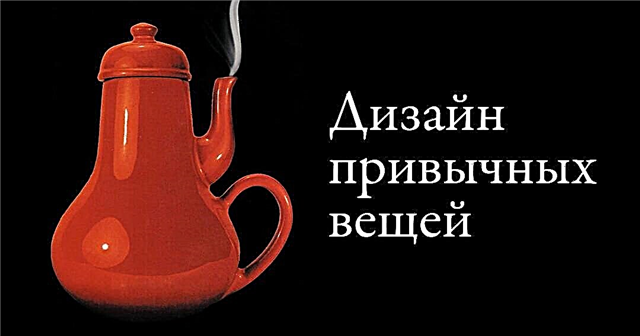
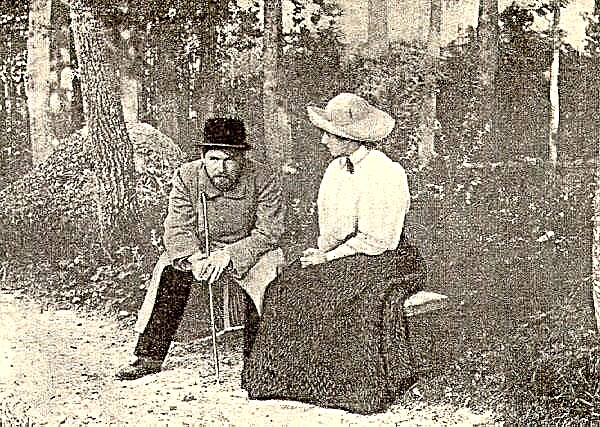

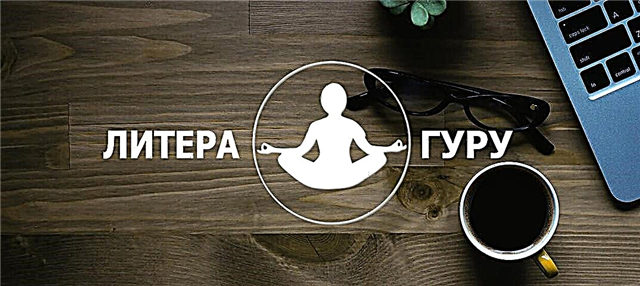

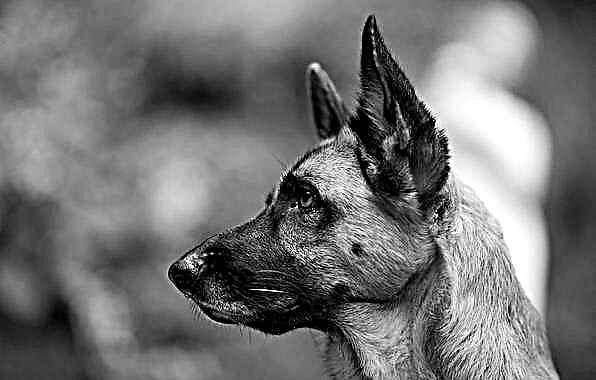
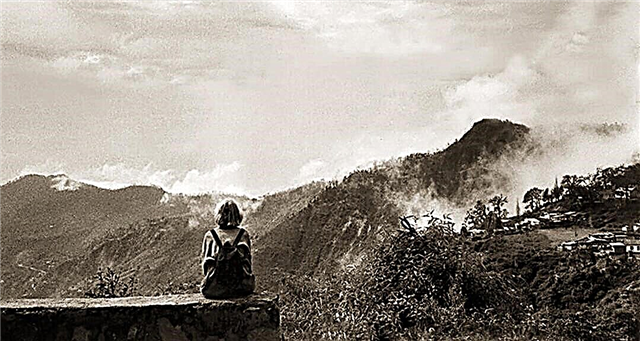 Learn to see
Learn to see